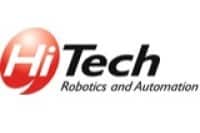If you are considering selling your company to an EOT, we would always advocate the use of a Lead EOT Advisor on your transaction but what is one and what do they do?
What does it mean to be Lead EOT Advisor?
The Lead EOT Advisor will oversee and manage the entire transaction from start to finish, ensuring the whole process is run smoothly. The Lead Advisor typically has an accounting/financial background and so will take responsibility for all financial aspects of the transaction and work with the other necessary external professionals (e.g. lawyers) to deliver the complete solution.
What does an accountant do on an EOT transaction?
The starting point in any EOT transaction is to have an open and full open discussion about the suitability of an EOT as a succession solution for you and your business. Once suitability is established, the journey to employee ownership can commence.
Not only should you expect your accountant to discuss the whole process in detail with you, during an EOT transaction your chosen accountant is likely to be responsible for many key elements of the EOT process, including:
- The independent valuation of your business
- Sourcing finance for the sale of your business to an EOT
- Helping ensure the proposed EOT is tax compliant
- Guiding how the company will be governed under employee ownership
Why choose Hawsons?
Being highly experienced in the sector, Hawsons are expertly placed to act as Lead Advisors and take you through the full process of transitioning to employee ownership. Find out more about our EOT service here.
Pete Wilmer
Corporate Finance Partner
Related content
TMS Europe complete transition to an Employee Ownership Trust
Peter Wilmer and Jack Ware, members of the Hawsons Corporate Finance team, acted as lead advisors for TMS Europe Limited’s (“TMS”) transition into employee ownership. Ryan Fitzpatrick from Shakespeare Martineau LLP provided legal advice on the transaction. TMS Europe...
Hi-Tech Automation – 12 months into Employee Ownership
Employee Ownership is where the whole or part of a Company is owned by, or on behalf of, its employees. The government introduced some new and relatively generous tax reliefs for employee-owned companies in 2014 and since then Employee Ownership Trusts (“EOTs”) have...
Employee ownership trust problems
In this article, we are going to outline some of the problems that might arise if the transition to employee ownership is not managed and advised on correctly.Valuation of the company When selling your business to an EOT it is very important that you keep the...




